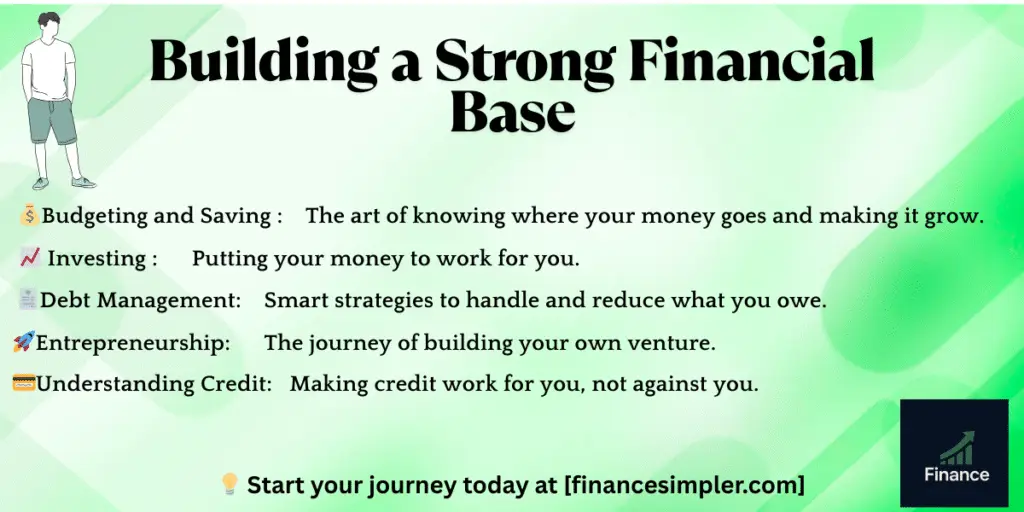Master Your Money:

Take control of your financial future! Explore 5 essential pillars: Budgeting & Saving, Investing, Debt Management, Entrepreneurship, and Understanding Credit. Start your journey to financial freedom today with our easy guide .
Budgeting and Saving :
Budgeting and saving are the cornerstones of financial health. By tracking income and expenses, setting financial goals, and prioritizing savings, you can create a roadmap to financial security.
Investment :
Investing allows your money to grow, helping you achieve long-term financial goals. Understanding different investment options and strategies is crucial for building wealth.
Debt Management :
Effectively managing debt is essential for financial well-being. By understanding your debts and implementing repayment strategies, you can reduce financial stress and improve credit health.
Entrepreneurship :
Entrepreneurship involves identifying opportunities, taking risks, and building businesses. It’s a path to financial independence and personal fulfillment.
Understanding Credit :
Credit plays a significant role in financial opportunities. Understanding how credit works and maintaining a good credit score can open doors to loans, housing, and more.
Frequently Asked Questions (FAQs)
Q1: How can I start budgeting if I’ve never done it before?
Begin by tracking all your income and expenses for a month. Categorize your spending to identify areas where you can cut back. Set realistic financial goals and create a budget that aligns with your income and priorities.
Q2: What’s the best way to start investing with limited funds?
Consider starting with low-cost investment options like index funds or ETFs. Many platforms allow you to begin investing with small amounts. Focus on consistency and long-term growth.
Q3: How do I choose between the debt snowball and avalanche methods?
The debt snowball method focuses on paying off the smallest debts first, providing quick wins and motivation. The avalanche method targets debts with the highest interest rates, saving money over time. Choose the method that best fits your financial situation and psychological preferences.
Q4: What are some low-cost business ideas for aspiring entrepreneurs?
Consider service-based businesses like freelance writing, graphic design, or virtual assistance. These require minimal upfront investment and can be started from home.
Q5: How can I improve my credit score quickly?
Pay all bills on time, reduce outstanding debts, avoid new credit inquiries, and regularly check your credit report for errors. Consistency and responsible credit use are key.
